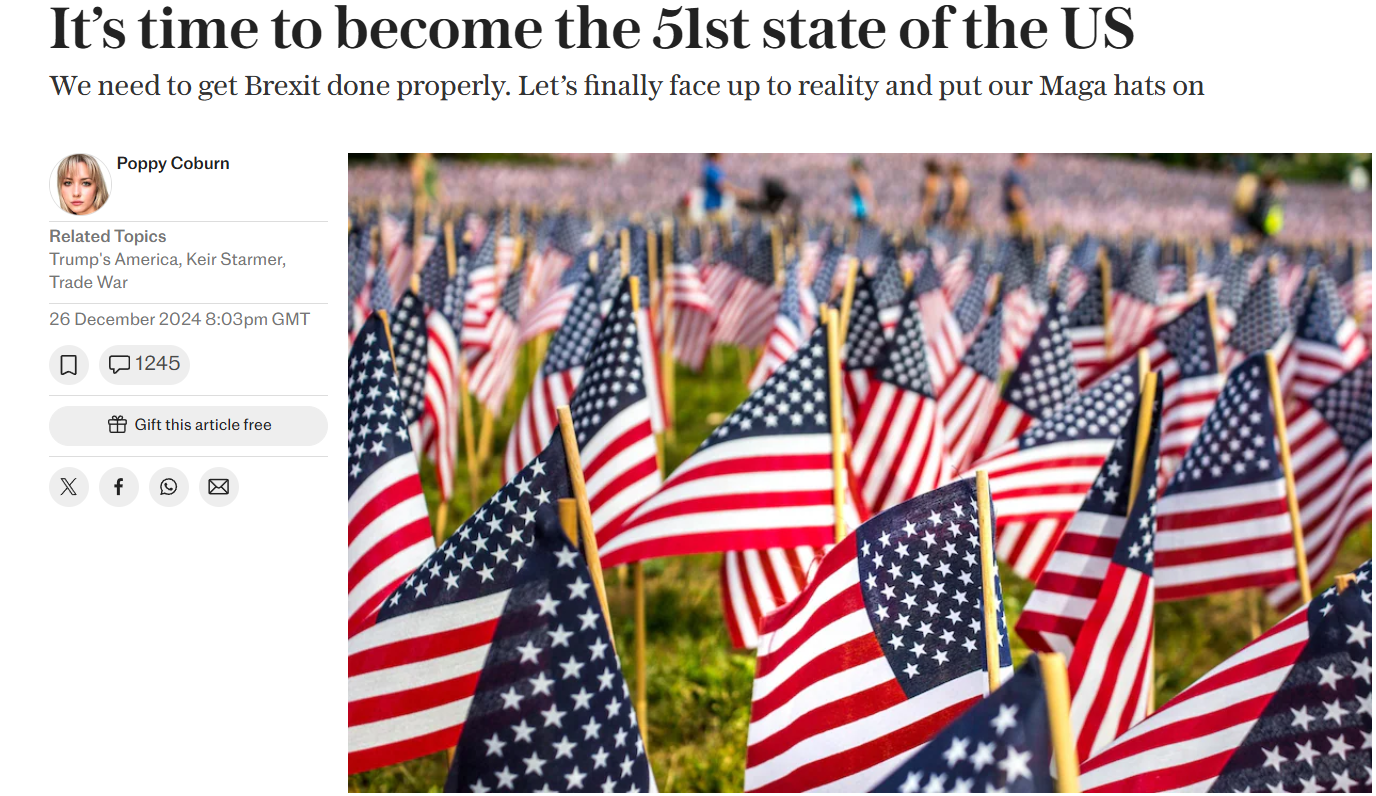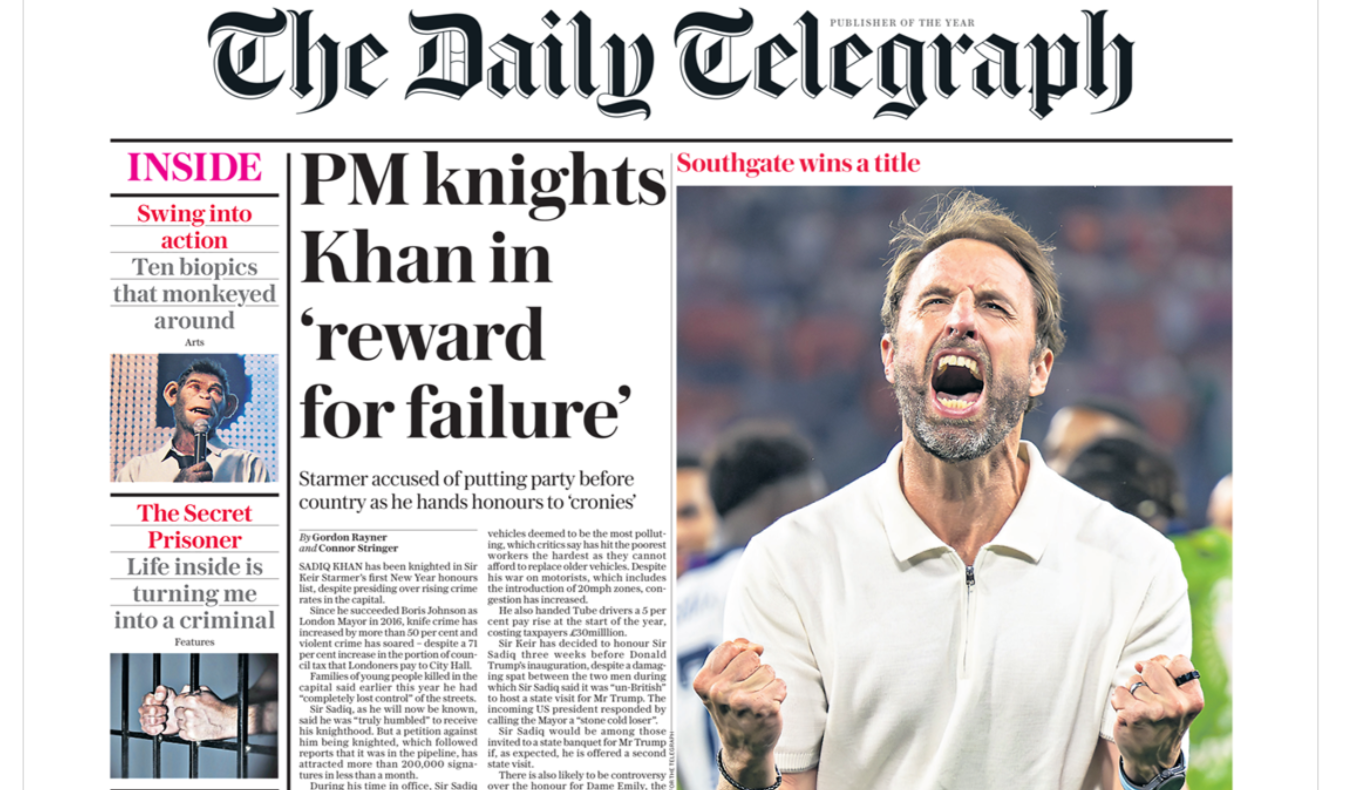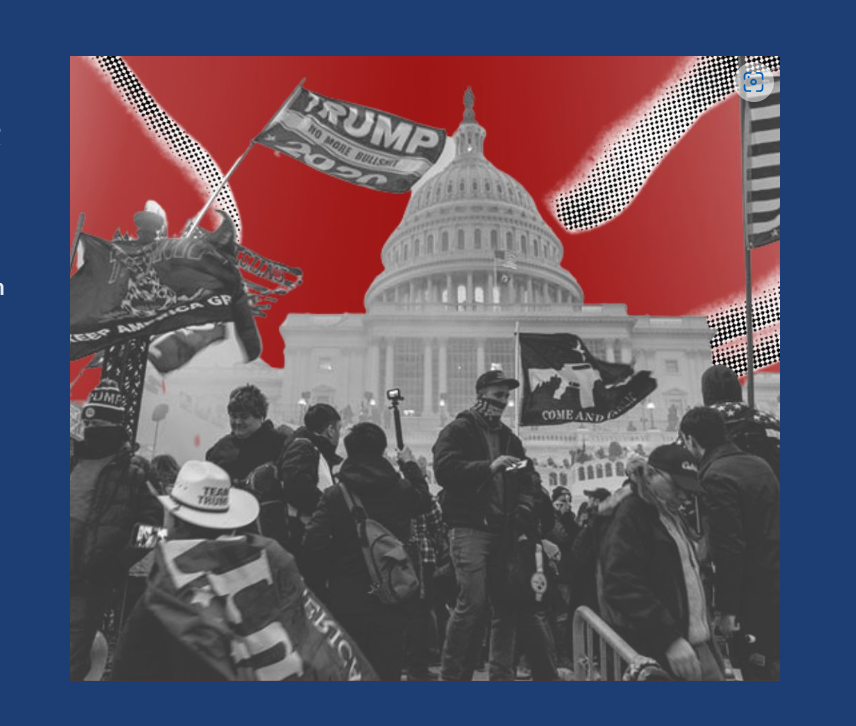Four years later, the ripple effects of that day continue to reverberate, manifesting in increasing displays of hate and extremism worldwide.
Four years ago on January 6, a violent and heavily armed mob of Donald Trump loyalists stormed the US Capitol while Congress was certifying the results of the 2020 presidential election. Five people were killed, and hundreds injured.
The attempted coup was not a spontaneous act but had been planned for weeks, encouraged by elected officials and, most notably, the former president himself, who had spent weeks stoking baseless ‘big lie’ conspiracy theories about Joe Biden’s win. On that day, Trump urged the crowd to march to the Capitol and “fight.”
Now, four years later, the man identified by the House of Representative’s January 6 Committee as having “lit that fire” of insurrection, is about to return for a second presidential term. Trump has promised to pardon many of the rioters. In an interview with TIME magazine, he said that pardons could start in “the first hour… maybe the first nine minutes” of his presidency.
It’s the stuff of nightmares, representing a chilling turning point, not only for the United States but for democracies worldwide. Inevitably there are those who are emboldened by the events of January 6, who believe that there are few consequences, perhaps even political rewards, for inciting violence. Four years later, the ripple effects of that day continue to reverberate, manifesting in increasing displays of hate and extremism worldwide.
And Europe is no exception, where, sadly, news of tragic far-right violence is never far away. Germany has witnessed a surge in far-right, racist, and antisemitic violence, reaching unprecedented levels in over a decade, where violence against politicians dominates the headlines.

The European Liberal Forum (IPS) highlights how these attacks are often driven by transnational networks of far-right extremists, particularly through online communities. In their 2022 Policy Paper, they wrote:
“Each new attack serves as a motivation to do the same or even more. Despite these networks being decentralised, international links are maintained, particularly between the US and Europe…. Asylum seekers and ethnic minorities are often the primary targets.”
Intensifying divisions
On the first anniversary of the Capitol Hill riots, scholars from the Freeman Spogli Institute for International Studies reflected on the long-term impact of January 6. Larry Diamond, the Mosbacher Senior Fellow in Global Democracy, warned that the insurrection was the “gravest assault on American democracy since the Civil War.”
“[But] rather than providing a sobering lesson of the dangers of political polarisation, the insurrection seems only to have intensified our divisions, and the willingness to contemplate or condone the use of violence,” said Diamond.
He pointed to a Washington Post survey from 2022, that showed a third of Americans feel violence against the government could be justified in some circumstances, a sharp increase from 16 percent in 2010 and 23 percent in 2015.

Diamond’s concerns are compounded by the fact that many politicians have not been chastened by the near “constitutional catastrophic” events of January 6.
“The “Big Lie” that Biden did not legitimately win the 2020 election retains the support of most Republicans and a substantial proportion of independents. Around the country, Republican legislatures have been introducing, and in many states adopting, bills that would give Republican legislatures the ability to reverse or sabotage legitimate electoral outcomes, and other bills that make it more difficult for people (especially Democratic-leaning groups) to vote,” he continued.
A hint at the UK’s future?
The UK watched in horror at the chaos unfolding on Capitol Hill four years ago. Images of rioters scaling government buildings, desecrating offices, and beating officers were a reminder of what democracy shouldn’t look like, and, at the time, we believed such an insurrection could never happen here.
Yet a dangerous undercurrent has been brewing in Britain, where US-imported adversity to diversity and inclusion has made its way across the Atlantic, fuelled, sadly, by a right-wing media. Outlets like the Daily Mail and the Sun, repeatedly stoke fears about the “Islamification” of Britain, presenting Muslims as a threat to British values, while pushing an agenda that is highly critical of progressive movements, using the term ‘wokeism’ pejoratively to present a perceived overemphasis on political correctness and identity politics.
Senior Tories embrace Trump
Despite his role in the January 6 insurrection and his regular use of violent language to describe his opponents, high-profile Tory figures in Britain laud Trump. Liz Truss claimed – absurdly – he will make the world safer. Robert Jenrick said if he was an American citizen, he would “be voting for Donald Trump,” while Boris Johnson praised him for ensuring a “peaceful transfer of power” despite the coup attempt in 2021. This embracing of Trump shows just how far to the right the Tory party has fallen.
Farage and Reform
Then there’s the growing influence and popularity of Reform UK and Nigel Farage, who dismissed the Capitol Hill riots as a “ramshackle gathering of people.”
In the 2024 general election, Reform secured 4.1 million votes, marking the largest vote share ever for a far-right party in Britain. The party’s growing popularity among voters parallels the rise of far-right in the US, where formerly ‘moderate’ Republicans coalesce around Trump and his overt racism. A Politico analysis found that more than 20 of Trump’s presidential campaign rallies and campaign events demonised minority groups. The supposed threat of migrants was the core part of the former president’s campaign, promising that he’s the one who can save the country from a group of people he calls “animals,” “stone cold killers,” the “worst people,” and the “enemy from within.”

This perceived threat of migrants was also the cornerstone of Reform’s election campaign. Farage even said the general election “should be the immigration election,” promising a “freeze” on non-essential immigration, which he blamed for NHS waiting lists and the housing crisis, saying other parties “would rather not discuss it.”
Nigel Farage has made it clear that Trump is his dear, dear friend, having abandoned his constituents in Clacton multiple times so he can attend Republican events in the US.
Hope not Hate warns that the rise of Reform is a threat to communities, spreading division and pushing far-right ideas. “If we don’t act now, we risk seeing their influence grow even further in future local, mayoral, and general elections.”
Far-right riots
Sadly, the magnitude of the far-right ‘anger’ flared up this summer, following the tragic stabbing of three young girls in Southport. While the incident sparked shock and disbelief across the UK, a false narrative emerged online, claiming the attacker was a Syrian Muslim asylum seeker. This fuelled outrage and riots among groups of anti-immigrant protestors, who targeted mosques.
In a bid to quell the violence, a judge made the unusual decision to reveal the identity of the attacker – a 17-year-old British national from a Christian family originally from Rwanda. Yet the damage had been done.
So-called “pro-British protestors” engaged in violent acts, throwing bricks through mosque windows, chanting anti-Islamic slurs, setting cars on fire, attacking residents and police, and even attempting to burn down a hotel housing asylum seekers.
As the violence escalated, right-wing figures and apologists for the rioting spread a myth that white far-right “protestors” were the victims of a “two-tier” policing system that discriminated against them based on race and politics. The hashtag #twotierkeir trended.
The narrative was pushed by figures like Tommy Robinson, Laurence Fox, and Nigel Farage. Farage, in particular, claimed that the perception of two-tier policing grew from the “soft policing” of the Black Lives Matter protests.
The recent tragedy in Germany, when a driver crashed into a Christmas market and killed at least five people, ignited a similar firestorm of far-right fury. When the suspect was identified as a man from Saudi Arabia, leading right-wing figures from the Netherland’s Geert Wilders to Nigel Farage and Marine Le Pen in France, seized on the harrowing attack to push an anti-immigrant and anti-Islam agenda. Tech billionaire Elon Musk, who’s now a key adviser to Trump, also weighed in, blasting the German chancellor Olaf Scholz as an “incompetent fool.”
It subsequently emerged that the arrested man is a Saudi refugee Christian working as a doctor with some connections to the far-right who may have been protesting at either German treatment of refugees, or the Saudi regime, or against Islam. He was known to the authorities and clearly presents a more complex case that the likes of Musk would acknowledge. The right never deals with complexity of nuance though, preferring to live permanently in the nursery rhyme world of Simple Simon.
US interference in UK politics
Seemingly unable to keep his nose out of other country’s politics, Musk also led the ‘two-tier’ policing charge in the summer. He tweeted that “civil war is inevitable” in the UK, in response to a post claiming that “open borders and migration” had led to the protests.
Musk also tweeted in support of those attacking officials for arresting people believed to have posted offensive comments online, promoting a “free speech absolutist” stance he has long pushed. He posted a meme of a cartoon character strapped to an electrocution chair and likened the scene to the punishment people would face for posting their views online in the UK by 2030.
“Is this Britain or the Soviet Union?” he asked in yet another tweet.
But these claims are easily debunked. BLM demonstrations in Britain were mostly peaceful, as are the protests against Israel’s bombing campaign in Gaza.
Musk kicked off 2025 as he ended 2024, calling for the release of the jailed far-right activist, Tommy Robinson. He tweeted that authorities should “free Tommy Robinson” — and said a deeply controversial documentary by the English Defense League co-founder was “worth watching.”

As if Musk’s rants on the social platform that he owns (and has reportedly manipulated to artificially boost his content) weren’t bad enough, reports suggest that the billionaire is considering a $100 million donation to Reform, despite residing in the US.
“It will be a fantastic endorsement of our policies to save Britain and get Britain growing again,” said Reform’s deputy Richard Tice in a recent interview.
The hypocrisy of Farage and Tice’s acceptance of the foreign donor after having previously kicked up such as fuss over the Hungarian American billionaire investor George Soros donated £400,000 to the pro-EU campaign, Best for Britain, did not go unnoticed.
Dark money from the US to UK
But dark money has long crossed the Atlantic. Influential right-wing UK think-tanks, with ties to politicians, have received millions in donations from the US. As of 2022, the Taxpayers’ Alliance, the Institute of Economic Affairs (IEA), Policy Exchange, the Adam Smith Institute and the Legatum Institute had raised $9m from American donors since 2012.
From voter suppression to attacks on abortion rights, to an almost apocalyptic disdain for ‘woke’ leftists and the incessant peddling of culture wars, dangerous ideas from the American right have steadily gained ground in Britain.
And now with the dawn of Trump 2.0, we must ask: after turning our back on the EU, was landing in America’s lap always an ambition for some on the right?
A shocking headline in the Telegraph last week suggests it was:
“It’s time to become the 51st state of the US.”
“We need to get Brexit done properly. Let’s finally face up to reality and put our Maga hats on,” the author argued.

This embracing of Trumpism, and the man who incited a dangerous and deadly insurrection as he refused to accept the result of a democratic vote, akin to a three-year-old refusing to accept his bedtime, risks pushing Britain further down a dark and dangerous path, eroding the very values that have long defined the nation. America is about to embark on the most important political experiment of the post war years. Will the agencies of the democratic state – the law courts, the legislature, the media, the devolution of power to the states – be robust enough to withstand the excesses of Trumpism? While here at home, will the Labour government have the courage, the political nous, and above all sufficient success, to withstand those who will be pressing to plant Trumpism in our own soil. That seems to be the fundamental question as we enter the new year.
Right- wing media watch – Rage against Khan – Sadiq’s knighthood triggers Tory media meltdown
Sadiq Khan has been handed a knighthood in the New Year Honours, prompting a right-wing media meltdown. “Reward for failure,” they’re calling it.
“Leading Tories pointed to his ‘track record of failure’ in the capital, including over tackling knife crime and dramatic hikes in council tax, congestion charges and emissions levies,” bemoaned the Daily Mail.
Such is the anger over the London mayor’s knighthood that it threatens to “overshadow the list,” claim the reports.
The Telegraph felt compelled to make the PM’s ‘reward for failure’ its lead frontpage story.
“Starmer accused of putting party before country as he hands honours to ‘cronies,’ the article continued.

The “reward for failure” smear seemed to have originated from shadow home secretary Chris Philp, who was quoted by the Telegraph saying: “Londoners would be “furious” at Sir Sadiq’s knighthood, which amounted to “rewarding failure.”
Oh dear, are these the same Londoners who voted for Khan in landmark third successive term win as mayor in May? Despite a nasty and relentless smear campaign by his main rival, Tory candidate Susan Hall, which was backed up by much of the Tory press, Khan won 1,088,225 votes – 275,828 more than Hall.
Surely if Londoners were so against him, he wouldn’t have bagged what was the second-largest majority in the history of the London mayoralty process?
Alongside Angela Rayner and Ed Miliband, Sadiq Khan is one of the Tory media’s most loathed figures. In their rants about him “waging war on London’s drivers,” “capitulating to unions over tube strikes,” and “presiding over rising crime rates,” there’s no mention of the many strides he’s made in improving the lives of Londoners. Such as presiding over free school meals for all state primary school pupils, council homebuilding hitting a higher level than at any time since the 1970s, the freezing of rail fares as national fares continue to rise, standing up for renters, more police officers on the streets in the face of huge Tory cuts, and so on.
What is especially nauseating about the right-wing media’s reaction to Khan’s knighthood is its glaring double standards. In their rage against Khan, they also forget that Shaun Bailey, Khan’s Tory rival in the 2021 mayoral election, was nominated for a life peerage in 2022 by Boris Johnson – a fat lot of good Bailey’s done for London. But then again, when we think of the knighthoods given other mediocre right-wingers like the long-standing Eurosceptic John Hayes, peerages to Russians, not to mention that almost a quarter of those ennobled in 2020 were party donors and ex-associates of Boris Johnson, Bailey might be one of the better ones.
If Starmer was going to knight anyone, I’m so pleased he choose Sadiq Khan. Not only his many great achievements in London, but because it clearly grated on the nerves of the right-wing press.
If there’s one thing we can count on, it’s the predictability of the Tory media. The one thing they cannot abide is for political success to be found in left-wing or even mildly progressive policies. Despite Atlee’s massive rebuilding of Britain after the war, the social transformations enabled by the Wilson government, and even the restoration of public services achieved by the first Blair government, the right-wing narrative has to be one of left failure.
Smear of the week – Tory press seize on Tulip Siddiq ‘embezzlement’ smear
Sadiq Khan wasn’t the only one who found themselves targeted by a right-wing smear campaign over Christmas.
‘Keir Starmer’s corruption minister Tulip Siddiq and her family are probed over claims they took £4 billion in bribes for Putin-funded nuclear power plant,’ is a dream headline for the Tory press. And, predictably, it was the Daily Mail that had the ‘exclusive.’
It’s a sensational story that the tabloids are eager to milk, but the truth behind Labour MP Tulip Siddiq’s involvement in alleged embezzlement, is far more complex and opaque.
The allegations stem from a 12-year-old event. In 2013, Siddiq, whose family’s native country is Bangladesh, was photographed with Russian President Vladimir Putin and her aunt at a signing ceremony for a deal between Russia and Bangladesh.
Siddiq faces allegations that she was involved in brokering the deal, and Bangladesh’s Anti-Corruption Commission (ACC) is investigating her for embezzlement.

While Tulip Siddiq has long been involved in the Labour Party, having joined them at 16 and becoming Camden’s first Bangladeshi female councillor in 2010, she did not become an MP until 2015.
She has also firmly denied any wrongdoing, calling the claims politically motivated and a “hit job.”
Saddiq’s aunt, Sheikh Hasina Wazed, was ousted as the country’s prime minister in August after 15 years in power. She began her political career as a pro-democracy icon, but, in recent years, had been accused of turning autocratic and clamping down on any opposition to her rule.
The inquiry into the Labour minister was opened as part of a wider investigation by Bangladesh’s anti-corruption commission, which is looking into crimes and corruption that took place under Hasina’s rule.
Keir Starmer’s spokesman confirmed that the prime minister has full confidence in Siddiq, who continues to serve as economic secretary to the Treasury and City minister. Asked about any potential conflicts of interest, the spokesman said: “I can’t speak to events that happened prior to a minister’s time in government,” adding, there was a “very clear declaration process” for ministers, which had been followed.
But Conservative politicians and their supporting press are using the allegations to score political points, demanding that Siddiq “comes clean.” Matt Vickers, Conservative home affairs spokesman, said: “The British public deserve a government that is focused on their priorities, not distracted by yet another scandal.”
The more liberal press has reported the story with greater balance, acknowledging Siddiq’s denials and confirming that her discussions with the ethics team were part of a standard fact-checking process, not a formal investigation.
As the Guardian reports, it is understood that Bangladeshi authorities have not yet contacted Siddiq as part of the investigation, which was based on allegations raised by Bobby Hajjaj, who was in opposition under Hasina’s rule.
But, sigh, being female, Muslim, and a Labour MP, Tulip Siddiq is an easy target for the gutter press, never mind the fact that this smear is built on a 12-year-old photo and politically motivated claims.
Gabrielle Pickard-Whitehead is author of Right-Wing Watch
To reach hundreds of thousands of new readers we need to grow our donor base substantially.
That’s why in 2024, we are seeking to generate 150 additional regular donors to support Left Foot Forward’s work.
We still need another 117 people to donate to hit the target. You can help. Donate today.



